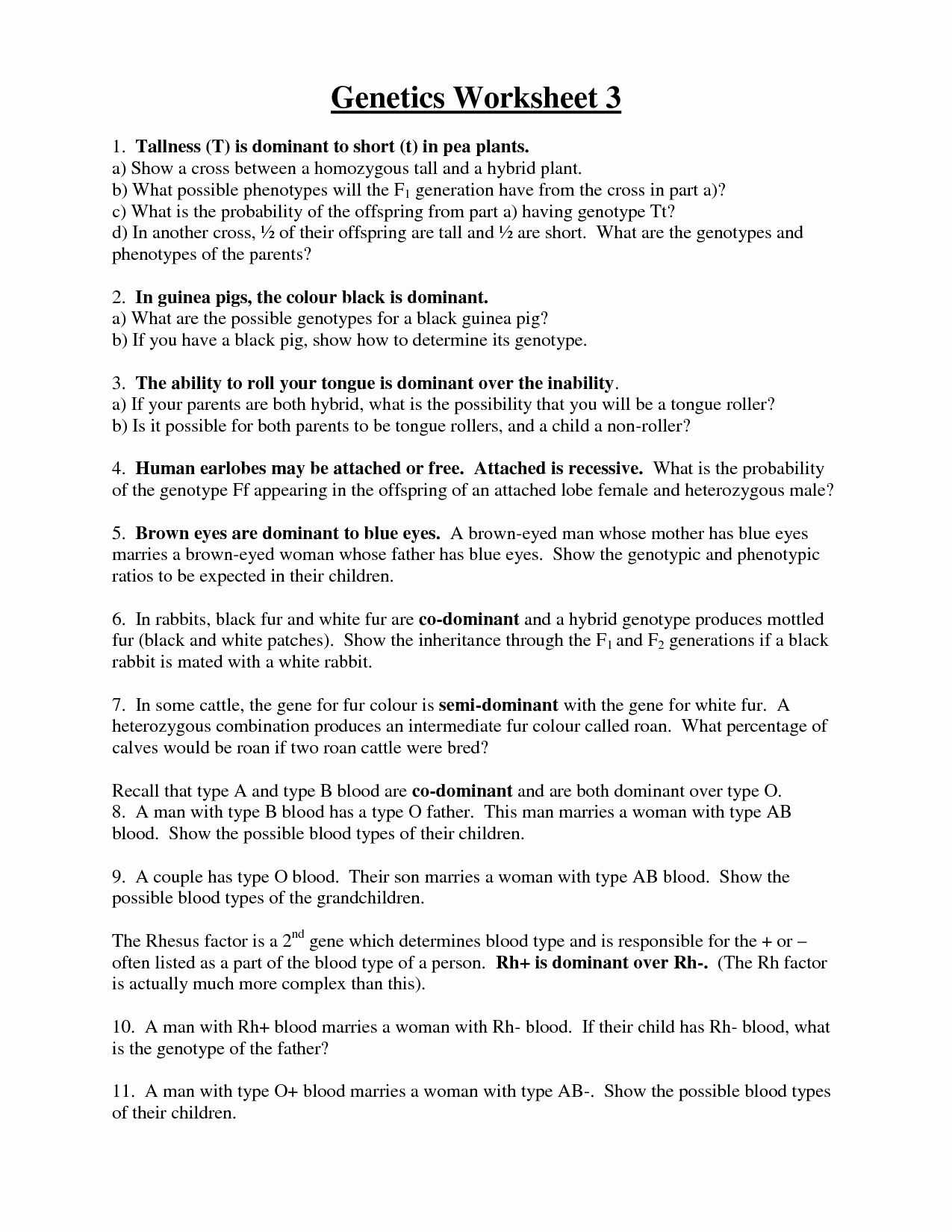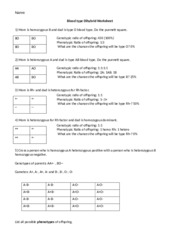Have you ever wondered why you have the blood type you do? Or perhaps you’ve been fascinated by the different blood groups and their unique characteristics. The study of blood types and how they are passed down through generations is a fascinating journey into the world of genetics, and it’s one that can be demystified with a little bit of understanding. This article will be your guide, offering a comprehensive explanation of the basics of blood type inheritance, providing a clear understanding of the “answer key” that helps us understand our blood type and those of our family members.

Image: chessmuseum.org
Blood types, specifically the ABO blood group, are determined by specific genes inherited from our parents. Each parent contributes one gene, and these two genes together determine our blood type. Understanding these genes and their potential combinations allows us to predict the possible blood types of a child based on the blood types of their parents. This is where the concept of a “blood type and inheritance worksheet answer key” comes into play, offering a simple yet powerful tool for predicting blood types and understanding the fascinating interplay of genetics within families.
The Basics of Blood Type Inheritance: A Journey into Genetics
To grasp the concept of blood type inheritance, we need to familiarize ourselves with the ABO blood group system, which is the most common system used for classifying blood types. It’s determined by the presence or absence of certain antigens, or proteins, on the surface of red blood cells. These antigens are responsible for triggering immune responses, and their presence or absence dictates a person’s blood type. Within the ABO system, we have four distinct blood types:
- Type A: Contains the A antigen
- Type B: Contains the B antigen
- Type AB: Contains both A and B antigens
- Type O: Contains neither A nor B antigens
The inheritance of blood type follows specific patterns determined by the genes we receive from our parents. These genes occupy specific locations on our chromosomes, and they come in different forms, known as alleles. For the ABO blood group, there are three possible alleles:
- IA: This allele produces the A antigen.
- IB: This allele produces the B antigen.
- i: This allele does not produce any antigens.
Each individual inherits one allele from each parent, resulting in various possible combinations. These combinations, in turn, determine the individual’s blood type.
Decoding the Answer Key: Understanding Blood Type Inheritance Patterns
To make predicting blood types more straightforward, we can utilize a simple table that illustrates the possible genotypes (combination of alleles) and the corresponding blood types:
| Genotype | Blood Type |
|---|---|
| IAIA | A |
| IAi | A |
| IBIB | B |
| IBi | B |
| IAIB | AB |
| ii | O |
This table serves as our “answer key” for understanding blood type inheritance. Let’s break down a few scenarios to illustrate its application:
-
Scenario 1: Both parents have Type A blood: If both parents have Type A blood, they could have either the IAIA or IAi genotype. Their child could inherit either two IA alleles (IAIA) resulting in Type A blood, or one IA and one i allele (IAi) also resulting in Type A blood.
-
Scenario 2: One parent has Type A blood and the other has Type B blood: In this case, the parent with Type A blood could have either the IAIA or IAi genotype, while the parent with Type B blood could have either the IBIB or IBi genotype. Their child could inherit a combination of these alleles, resulting in the following blood types:
- IAIB: Type AB blood
- IAi: Type A blood
- IBi: Type B blood
- ii: Type O blood
-
Scenario 3: One parent has Type A blood and the other has Type O blood: If one parent has Type A blood (IAIA or IAi) and the other has Type O blood (ii), their child could inherit either:
- IAi: Type A blood
- ii: Type O blood
Beyond the Basics: Addressing Common Questions and Considerations
While the basic principles of blood type inheritance are straightforward, there are a few nuances and complexities worth exploring:
-
Rhesus Factor (Rh): Besides the ABO blood group system, there’s another critical factor: the Rh factor. Your blood type can be either Rh-positive (Rh+) or Rh-negative (Rh-). This factor is also inherited, and its positive or negative status can impact blood transfusions and pregnancy.
-
Rare Blood Types: Although the ABO system accounts for the majority of blood types, there are rare blood types that exist due to mutations in the genes responsible for producing antigens. These rare types have specific implications for transfusions and may require special blood banks as sources.
-
Implications for Pregnancy: Blood type compatibility between mother and child can be a factor in pregnancy, specifically regarding the Rh factor. If a mother is Rh-negative and the fetus is Rh-positive, there’s a risk of complications, requiring specific medical interventions.

Image: tutore.org
Practical Applications of Blood Type Inheritance
Understanding blood type and its inheritance holds significant practical applications:
- Blood Transfusions: The ABO blood group system is crucial for safe blood transfusions. Only compatible blood types can be transfused to avoid life-threatening immune reactions.
- Paternity Testing: While not definitive, blood type inheritance patterns can be utilized to rule out or support possible paternity claims. However, it’s important to note that blood type alone cannot conclusively establish paternity.
- Family History and Medical Genetics: Understanding your blood type and its inheritance can provide insights into family health history and potential risks for certain conditions. However, it’s crucial to consult with a medical professional for comprehensive medical advice.
Expert Insights: Navigating the World of Blood Types
For deeper insights into blood type and inheritance, consult with a hematologist, a physician specializing in blood disorders. They can offer personalized guidance regarding your blood type, potential implications for your health, and any specific considerations based on your family history.
Blood Type And Inheritance Worksheet Answer Key
Taking Action: Embracing the Power of Blood Type Knowledge
By understanding the basics of blood type inheritance and the “answer key” that guides the patterns, you can navigate the world of blood types with confidence. Seek out resources that delve deeper into this fascinating topic, and consider consulting with a healthcare professional to gain a more comprehensive understanding of your own blood type and its relevance to your health. Knowledge is power, and when it comes to your blood type, it can empower you to take control of your health and well-being.






